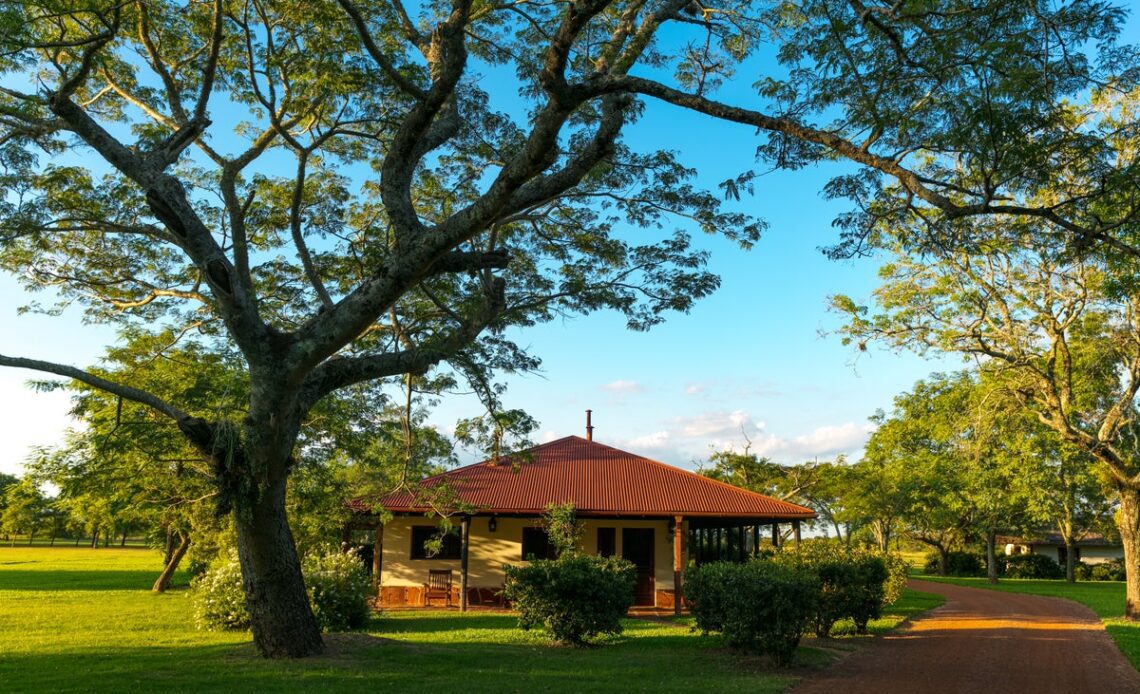They’re sparkling in the distance, dozens of them, twinkling and mesmerising. But they’re not in the sky. These lights are in fact an agglomeration of caiman eyes, glowing in the dark as they watch us from the comfort of their lagoon.
We’re in a wide, open part of already vast Argentina. Forget Pampa or Patagonia; we’re in the Iberá Wetlands in northeastern Corrientes province, not far from the border with Paraguay. An abundant land, rich in vegetation and wildlife, this wasn’t always the case. Until recently, extinction and scarcity were associated with this region.
Forty years ago, in 1983, hunters in the Iberá Wetlands stopped pursuing caimans, otters and capybaras. Instead, they decided to become the area’s very first park rangers and created a provincial park in Iberá, dedicated to protecting their homelands rather than exploiting them.
(Rewilding Experience )
Doug Tompkins, founder of The North Face, then bought the land in 1997 and dedicated it entirely to rewilding. Today, the Iberá Wetlands are an impressive success story: 1,300,000 hectares are protected; species that went extinct due to human activity are being reintroduced. While it hasn’t been straightforward – some fauna, like the tapir, couldn’t be reintroduced because of disease – the team at Rewilding Argentina has been regenerating the ecosystem. They started at the bottom of the predatory pyramid and are now finishing at the top, having most recently reintroduced jaguars and ocelots. And visitors can enjoy the fruits of this regenerative labour while also contributing to the area’s conservation and rewilding efforts through a safari experience with Rewilding Experience.
Read more on South America travel:
One of the best ways to observe the wildlife on an Iberá safari is to glide by canoe, kayak or speedboat on Iberá Lagoon, just outside Carlos Pellegrini. Formerly a nondescript, almost non-existent town that was haemorrhaging residents, Carlos Pellegrini had no secondary school, so children wanting to pursue higher education had to leave and often didn’t come back. This has now changed, thanks to the creation of the Iberá National Park in 2018 and the subsequent introduction of tourism to the area. There are now jobs for local residents, with travellers from Argentina and beyond being a reason for youngsters to stay and work in their home…
Click Here to Read the Full Original Article at The Independent Travel…
